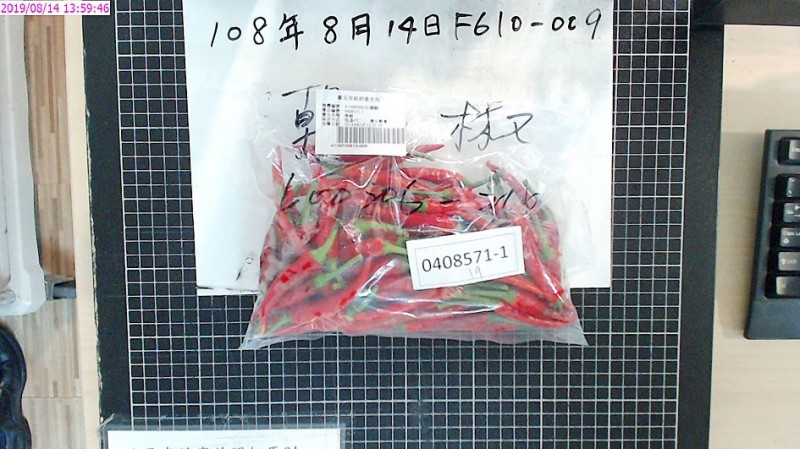《TAIPEI TIMES》 Excessive pesticide residue on fruit, veggies in Taipei

A bag of chili peppers that tested over the limits for fungicide residues is displayed on an office desk at the Taipei Department of Health on Aug. 14. Photo courtesy of the Taipei Department of Health
By Lee I-chia / Staff reporter
Last month’s inspection of fresh fruit and vegetables sold in Taipei found that 21.6 percent of the tested items had pesticide residue exceeding the maximum residue limits (MRLs), the Taipei Department of Health said yesterday.
A total of 88 samples were collected in August, and test found that 19 of them had pesticide levels higher than the MRLs — a failure rate of 21.6 percent, it said.
The items that failed the tests include Gynura bicolor, often called Okinawan spinach, which had four types of pesticide residue, and a shallot with three types of pesticide residue.
A longan, a chili pepper, edible amaranth and Gynura bicolor were found with two types of pesticides, while 13 items had residue from one pesticide exceeding the MRLs, including two samples of coriander and muskmelons, and one sample of longan, passionfruit, Taiwanese lettuce, pea, Fushan lettuce, Gynura bicolor, okra, string bean and lemon.
Nine of the failed items were collected from the Taipei Agricultural Products Marketing Corp (TAPMC) and were sold at Taipei First Wholesale Fruit and Vegetable Market, including a bag of chili peppers that had residue of the fungicide hexaconazole up to 26 times the MRL and another fungicide, pyraclostrobin, up to three times the MRL.
The sources of the failing fruit and vegetables could face fines of between NT$60,000 and NT$200 million (US$1,933 and US$6.44 million), and if the stores cannot identify the source, they would face fines from NT$30,000 to NT$3 million, the department said.
The TAPMC has also been informed that the suppliers of the problematic items must stop supplying fresh fruit and vegetables for 10 days, and they could lose their supplier license if their products failed tests for a second time, it said.
新聞來源:TAIPEI TIMES

















